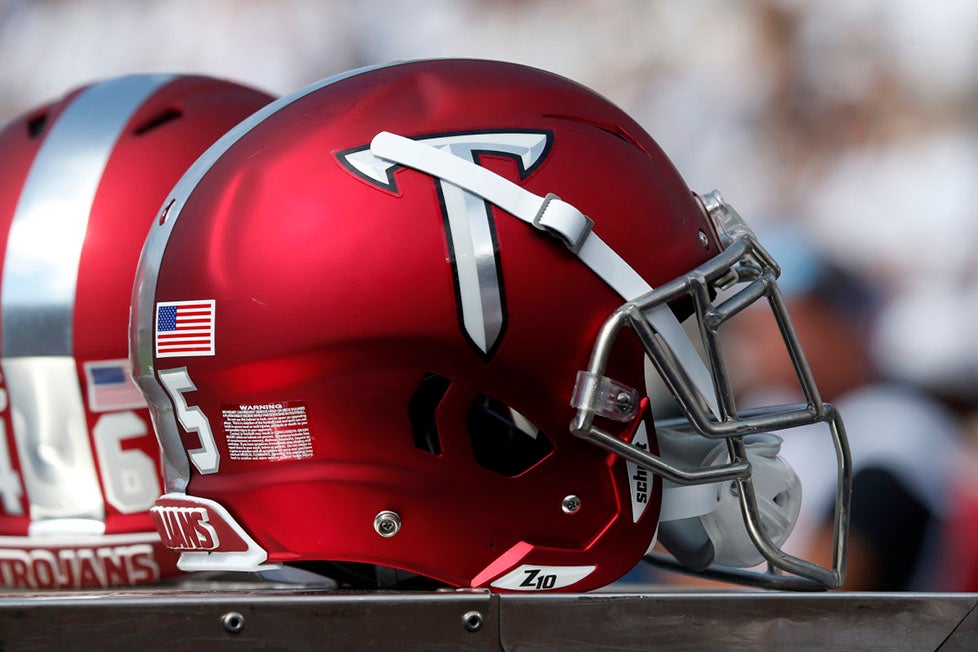Troy breaking in new helmet communication during spring practices
Published 10:35 am Friday, April 5, 2024

- Coach-to-player helmet communication is expected to come to college football in the 2024 season.
|
Getting your Trinity Audio player ready...
|
Coach-to-player helmet communication has been a staple in the NFL since the 1990s and now, it’s likely coming to college football.
The NCAA did a test-run of the communication system during bowl games last season and in March, the NCAA Football Rules Committee proposed making it universal for all teams that want to use the technology. The NCAA Playing Rules Oversight Panel is expected to approve the change later this month.
While the technology was first used in the 1950s by the Cleveland Browns, it was banned by the NFL until it became universal in the league beginning in 1995. Now, it’s hard to imagine an offensive coordinator – or head coach – not being able to communicate to their quarterback in the modern NFL.
With the technology likely coming to college football for the 2024 season, some college programs are getting a head start on breaking it in during spring practices; Troy University is one of them.
In college football, one player on offense and one player on defense will be able to have a speaker in their helmet, allowing play calls to come in from the sidelines.
“So far, so good, I haven’t put one on yet to experience the chatter,” Troy Head Coach Gerad Parker said of using the technology. “I’ve let (the coordinators) do it so far, but there is nothing awkward about it. The good thing is we’re using it. We have the resources to get it here and get going, and I’m glad we’re practicing with it instead of waiting to the summer and the fall. It’s helped, I don’t think we’re overcooking it; we’re just getting used to it.”
The technology – under the proposed rule – would be available for all games featuring FBS programs. The communication from the coach to player would be turned off with 15 seconds left on the play clock or when the ball is snapped, whichever occurs first.
The push for helmet communication in college football has come after the Michigan sign-stealing scandal last season in which Michigan staff members were alleged to have attended games of future opponents in an attempt to watch and steal in-game signs from the sideline.



